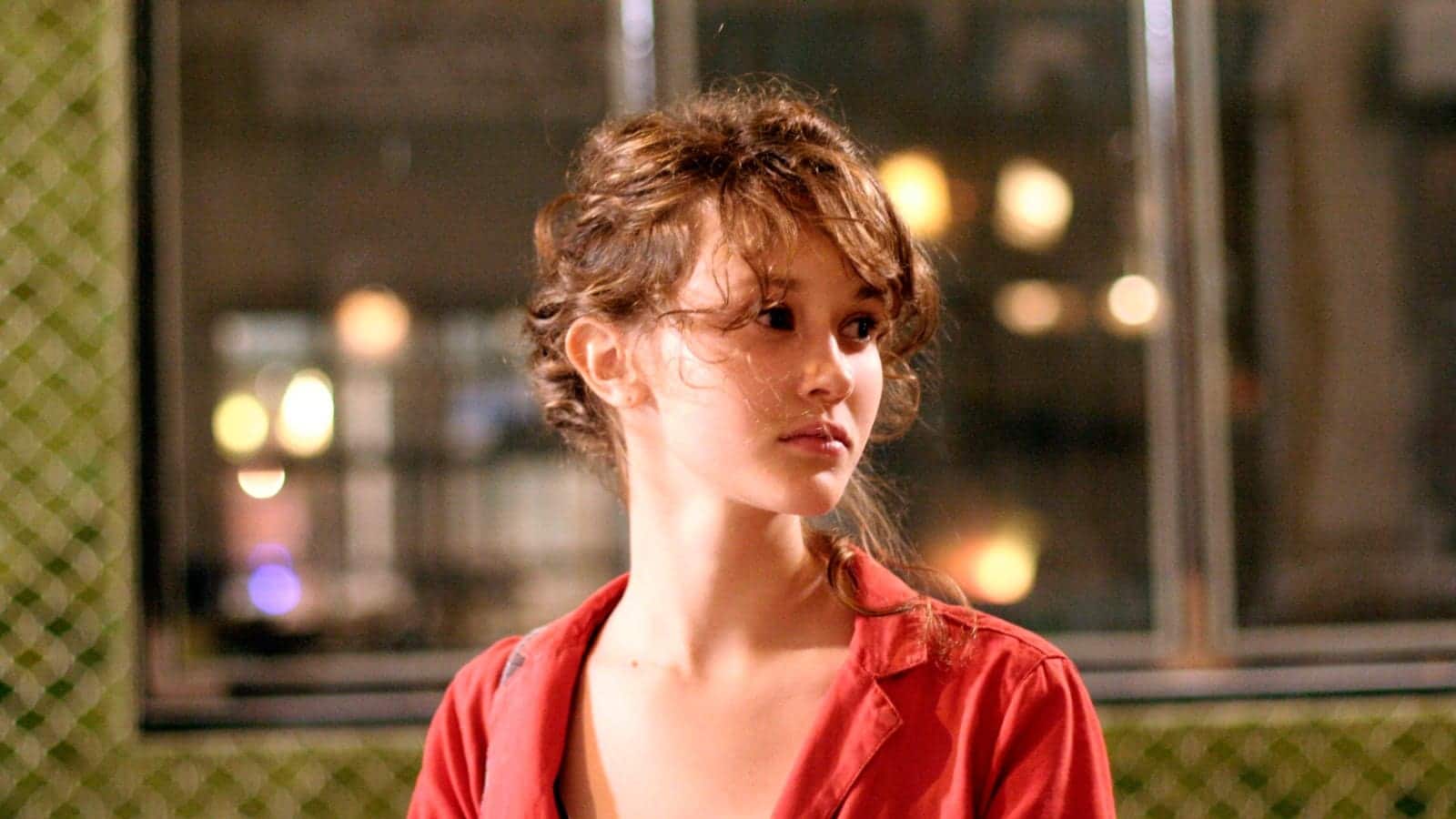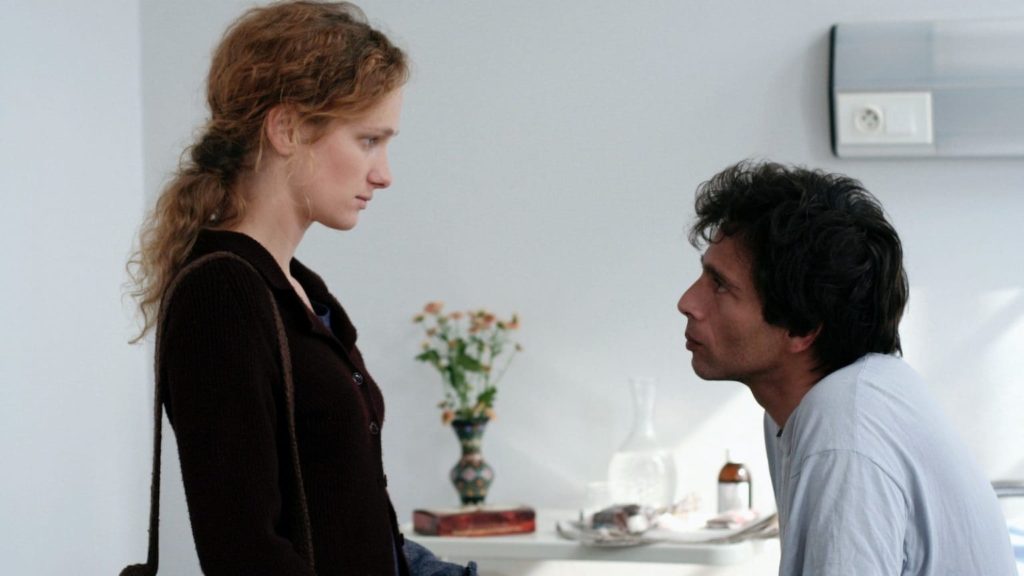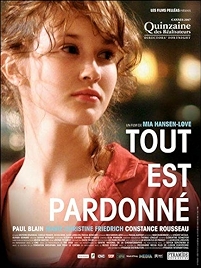All Is Forgiven (Tout est pardonné) was the first feature Mia Hansen-Løve made, in 2007, when she was about 25/26. It’s an interesting debut and sets the tone for a career built on small, carefully crafted human-relationship dramas going for the slow burn rather than the big melodramatic bang.
The Nordic name is a bit of a bum steer. Hansen-Löve is French, was born in Paris, and works in the distinctly French cinematic tradition, itself a continuation of the French literary tradition – Hugo, Balzac, Flaubert, Zola etc.
Which is another way of saying that her films are about recognisable people having a bad time. Here it’s never really certain whether it’s the dad who’s having the bad time, the wife, or the daughter. He, Victor (Paul Blain), is a handsome wiry guy who fancies himself as a writer but isn’t quite so good at buckling down to the work. Instead he drinks, or takes drugs, or eyes up women and files them away somewhere in a “to be continued” folder in his brain. She, Annette (Marie-Christine Friedrich), is an Austrian who came to Paris to be with the man she loved, had a child, then took fright/flight and relocated the entire family back to Vienna. Now, back in Paris again, she and Victor are making another go of it.
And between the two of them is Pamela (played by Victoire Rousseau as a child and her sister Constance as a teenager), a quiet, watchful kid caught in the middle as her parents’ marriage doesn’t so much fall apart as get stuck on the rocks.
The film divides into three chapters – Vienna, Return to Paris and Pamela, 11 Years Later, when Pamela, now pretty much grown up, is reunited with her father, all cleaned up, so he says, for a tentative relationship with a man she’s half forgotten, and he possibly her, for all his protestations.
This is a film about growing up – the man and the girl – told as a string of vignettes. Hansen-Løve is particularly good on these little moments. Vibes. The way a man catches a woman’s eye at a party and a little spark flashes across. The way a young woman enters a nightclub and feels liberated in the dark. And she uses them as little palate cleansers between moments of dramatic heft.
There are no engineered climaxes in this film, nothing that feels like it’s there to satisfy a genre convention, or a clock-watcher’s need to hit a beat by a certain point in order for the payoff to come down the road. All Is Forgiven feels natural. It isn’t – it’s highly contrived – but Hansen-Løve isn’t following a formula laid down by a screenwriting guru (or app).
In this film big moments come and go almost unnoticed, and emotional climaxes that seem to have been written in stone never materialise. Hansen-Løve is playing with us, nicely.
You’d not peg it as a first film, in terms of its self assurance and the performances Hansen-Løve gets from her actors. Little things suggest it is, like the way the action cuts to 11 years later and Victor, Annette and Victor’s sensible and caring sister Martine (Carole Franck) all look exactly the same. Same hairstyles. He’s not gone even a tiny bit greyer. Budget? Or again are we being played with a bit? Time moves on but people don’t?
It’s Constance Rousseau’s first film too, and she’s just right as the grown-up(ish) Pamela, a clear-eyed and sweet daughter nervous about meeting a man whose reputation has been curated by the ex-wife who has never forgiven him.
Stuff does happen in All Is Forgiven, big stuff, but it’s never presented as “big” to us, the viewer, even though it’s enormous for the person experiencing it. In many respects that’s the opposite of the way most dramatists work, and it’s why Mia Hansen-Løve is so interesting.
All Is Forgiven – Watch it/buy it at Amazon
I am an Amazon affiliate
© Steve Morrissey 2022


